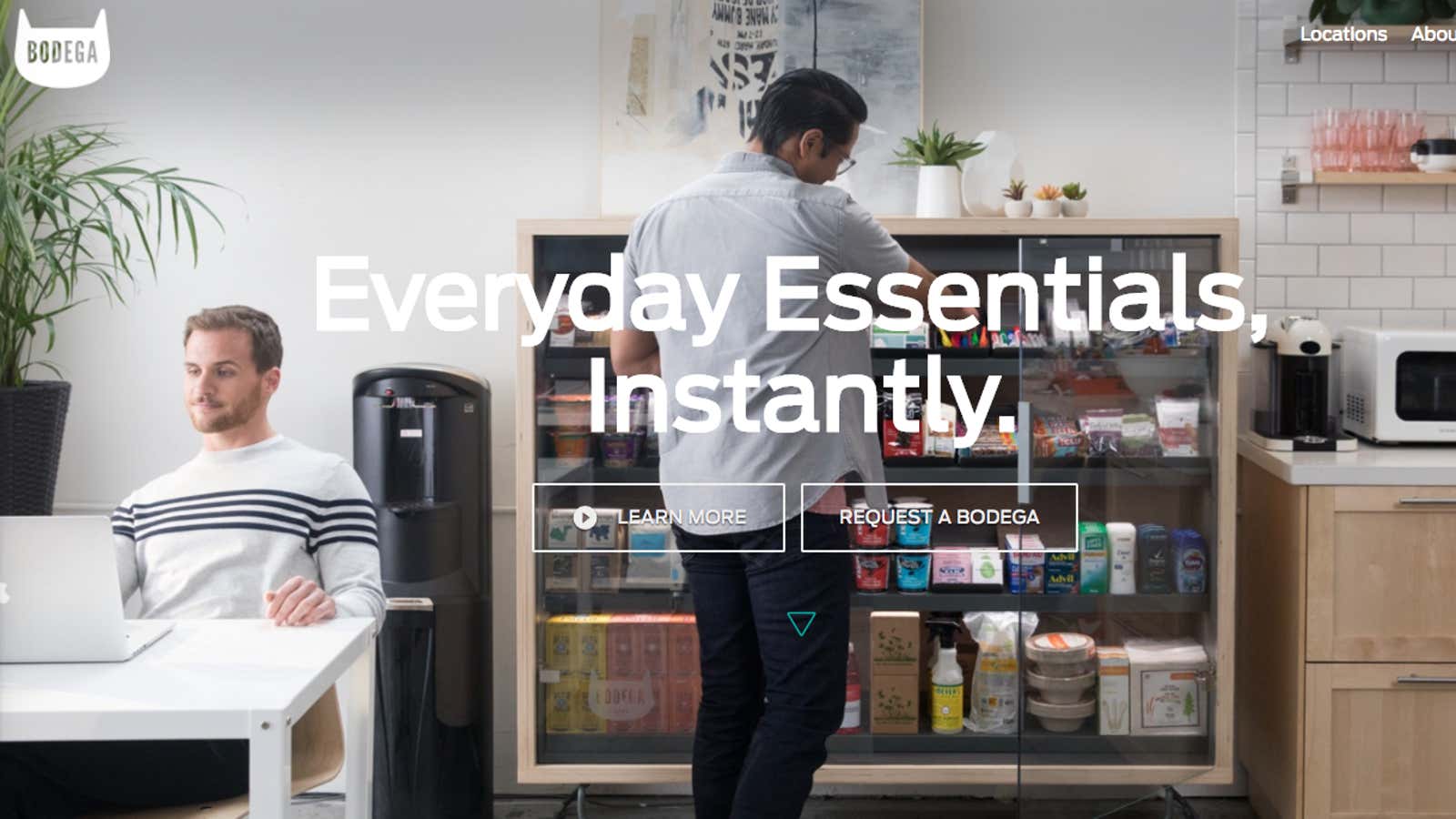The founders of Bodega got almost everything wrong when going to market, yet their underlying idea bears a closer look.
Bodega, the commerce startup funded by several sharp venture capitalists, has been having a rough time of it since they unveiled themselves to the world, less than two days ago.
Hot takes on the internet are comparing the firm to Juicero, the expensive, tech-enabled juicing startup which just folded, while also calling the company a bloated, useless tech layer, fattened up by VC. They say it is replacing something that already works well: the local corner store, a pillar of many communities.
All of this is true.
But, tone deaf positioning and PR aside, what Bodega’s investors saw in the business was real: distributed commerce. That’s the idea of moving marketplaces beyond central nodes in a city into hyper-distributed networks, where goods come to you.
When you squint at the concept, it’s aligned with where the world is going: updating infrastructure and weaving commerce into our daily lives in new ways.
What Bodega got wrong was everything else: their name, and most notably their approach to humans: removing them from the experience, completely.
Much of the technology narrative today is an either/or game: Tech will be supplanting and disrupting countless industries, and if you’re in the way of the figurative autonomous truck, you’re going to get squashed.
But as I have argued on many occasions, the interplay between technology and human thoughtfulness is where the most interesting things will happen in modern capitalism.
Tech doesn’t need to be a destroyer of worlds, it can make people better at their jobs. And it can certainly bolster small business. Tech can—and ideally, should—be very symbiotic and supportive of local, thoughtful, and nuanced experiences.
The unfolding commerce dynamic we are witnessing today is moving from the old style of “market to me,” to purchases happening with no friction, bypassing the mail room and being delivered directly into our refrigerators and closets. The re-alignment of distribution is real, and its coming represents a multi-billion dollar opportunity.
This change in how people get goods will also benefit local businesses—if they are built right, and connected to the network. This is what I have been working on as I’ve built Hello Alfred, a company that connects residential living to commerce in a completely new way.
When commerce is woven into our lives and homes, and as data about preferences improves, incredible experiences can await us. We will see true personalization. As Danny Meyer talks about in hospitality, people can have a “one size fits one” experience, made possible by the scale of data we have today.
My company and companies like us can use our data—what our customers have liked, looked at, tried, and considered— to build an incredible repository of hand-selected small business, products, and services. And as new tech-first distribution channels continue to scale, we support and partner with local businesses, rather than moving generic goods from one warehouse to the next.
For example, every day at Alfred, we order groceries, handle cleaning, and buy specialized products for our customers. We have the tech, logistics, and know-how to consistently deliver these things not just into peoples’ homes, but put away in the right place. This is the value we introduce into the equation. So while the world may be ordering from Amazon non-stop, we can give people ways to support their own local community and entrepreneurs. We can keep their small businesses—bookstores, florists, butchers, cobblers, tailors, and so many more, from being devoured by bigger fish.
I believe in the nobility of entrepreneurship. Entrepreneurs are the woman who moved to the US and open a dry cleaning business, the family-owned butcher shop that has existed for generations, the community florist—just as much as they are the guy thinking about the blockchain.
If founders learn to manage the interplay between humans and technology the right way, and use technology and logistics to onboard small business into the new distribution era, they can create a positive and nourishing ecosystem that supports the local people—all the way down to the actual bodega.
